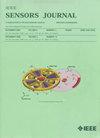基于FMCW雷达传感和深度学习的不确定意识手势识别
IF 4.3
2区 综合性期刊
Q1 ENGINEERING, ELECTRICAL & ELECTRONIC
引用次数: 0
摘要
调频连续波雷达(FMCW)是一种很有前途的自动控制系统手势重建装置。一些开创性的研究通过将FMCW雷达系统与深度学习(DL)技术相结合,在自动手势识别方面取得了显著进展。然而,这些深度学习模型的一个限制是它们无法传达与模型预测相关的不确定性,这在自主控制系统的背景下具有重要意义。本文介绍了通过开发不确定性感知深度卷积神经网络(CNN)来解决这一挑战的解决方案。该网络使用CNN模型,该模型结合了蒙特卡罗辍学(MCD)、深度集成学习(DEL)和频谱归一化神经高斯过程等先进技术。我们的新网络架构旨在有效地预测手势,同时提供模型预测中相关不确定性的估计。该方法在从10名志愿者收集的10个手势数据集上进行了评估。该模型预测手势的准确率超过99%,优于现有的确定性模型,并且具有抗噪性。该数据集可在https://github.com/thetuantrinh/Hand-Gesture-Recognition.git上获得本文章由计算机程序翻译,如有差异,请以英文原文为准。
Hand Gesture Recognition With Uncertainty Awareness via FMCW Radar Sensing and Deep Learning
Frequency-modulated continuous-wave (FMCW) radar is a promising device for hand gesture reconstruction in autonomous control systems. A few groundbreaking studies have achieved remarkable advancements in automated hand gesture recognition by combining FMCW radar systems with deep learning (DL) techniques. However, one limitation of these DL models is their inability to convey the uncertainty linked to the model’s predictions, which holds great significance in the context of autonomous control systems. This article introduces the solution to address the challenge by developing an uncertainty-aware deep convolutional neural network (CNN). The network uses a CNN model that incorporates advanced techniques including Monte Carlo dropout (MCD), deep ensemble learning (DEL), and spectral-normalized neural Gaussian process. Our novel network architecture aims to predict hand gestures efficiently while providing an estimation of the associated uncertainty in the model’s predictions. The proposed approach was evaluated on a dataset with ten gestures collected from ten volunteers. The model could predict gestures with an accuracy of over 99% which is superior and noise-resistant to the existing deterministic models. The dataset was available at https://github.com/thetuantrinh/Hand-Gesture-Recognition.git
求助全文
通过发布文献求助,成功后即可免费获取论文全文。
去求助
来源期刊

IEEE Sensors Journal
工程技术-工程:电子与电气
CiteScore
7.70
自引率
14.00%
发文量
2058
审稿时长
5.2 months
期刊介绍:
The fields of interest of the IEEE Sensors Journal are the theory, design , fabrication, manufacturing and applications of devices for sensing and transducing physical, chemical and biological phenomena, with emphasis on the electronics and physics aspect of sensors and integrated sensors-actuators. IEEE Sensors Journal deals with the following:
-Sensor Phenomenology, Modelling, and Evaluation
-Sensor Materials, Processing, and Fabrication
-Chemical and Gas Sensors
-Microfluidics and Biosensors
-Optical Sensors
-Physical Sensors: Temperature, Mechanical, Magnetic, and others
-Acoustic and Ultrasonic Sensors
-Sensor Packaging
-Sensor Networks
-Sensor Applications
-Sensor Systems: Signals, Processing, and Interfaces
-Actuators and Sensor Power Systems
-Sensor Signal Processing for high precision and stability (amplification, filtering, linearization, modulation/demodulation) and under harsh conditions (EMC, radiation, humidity, temperature); energy consumption/harvesting
-Sensor Data Processing (soft computing with sensor data, e.g., pattern recognition, machine learning, evolutionary computation; sensor data fusion, processing of wave e.g., electromagnetic and acoustic; and non-wave, e.g., chemical, gravity, particle, thermal, radiative and non-radiative sensor data, detection, estimation and classification based on sensor data)
-Sensors in Industrial Practice
 求助内容:
求助内容: 应助结果提醒方式:
应助结果提醒方式:


